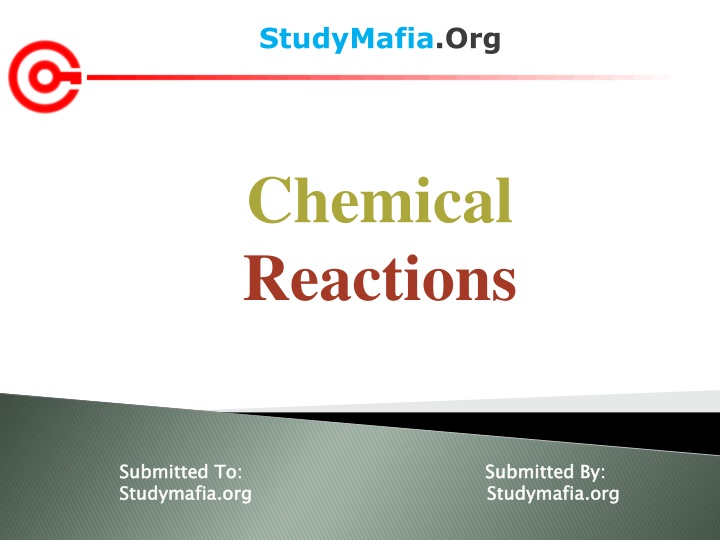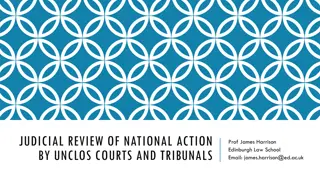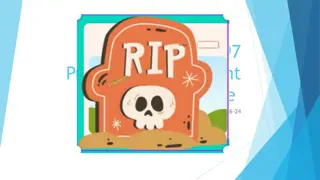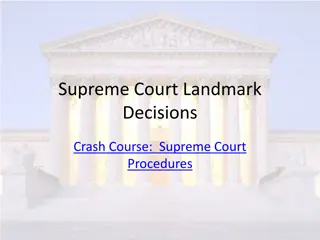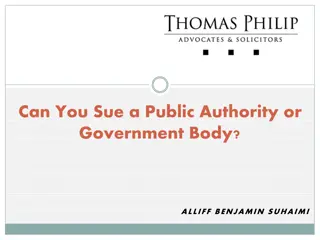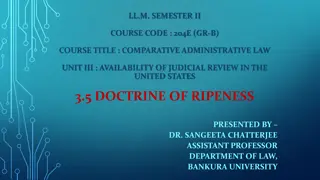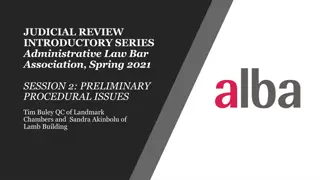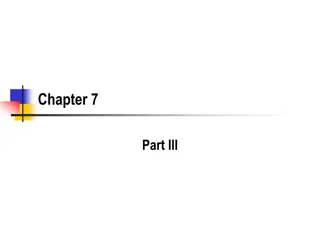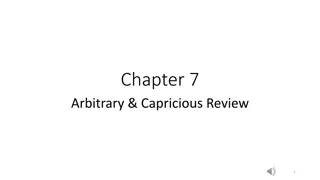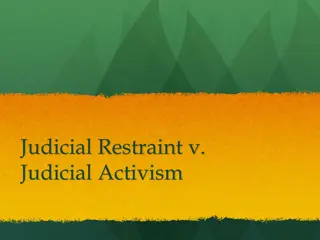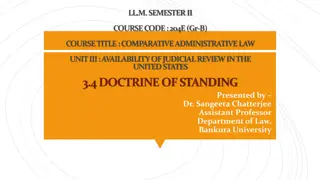Unit 4 Vocabulary: Law, Judicial Review, Unconstitutional
Essential legal terminology including judicial review, impartiality, and precedent. Dive into key concepts such as defendant, jury, and majority opinion to enhance your understanding of the legal system.
Download Presentation

Please find below an Image/Link to download the presentation.
The content on the website is provided AS IS for your information and personal use only. It may not be sold, licensed, or shared on other websites without obtaining consent from the author.If you encounter any issues during the download, it is possible that the publisher has removed the file from their server.
You are allowed to download the files provided on this website for personal or commercial use, subject to the condition that they are used lawfully. All files are the property of their respective owners.
The content on the website is provided AS IS for your information and personal use only. It may not be sold, licensed, or shared on other websites without obtaining consent from the author.
E N D
Presentation Transcript
StudyMafia.Org Chemical Reactions Submitted Studymafia.org Studymafia.org Submitted To: To: Submitted By Submitted By: : Studymafia.org Studymafia.org
Table Contents Definition Introduction Concepts of Chemical Reactions Types of Chemical Reactions Points To remember Conclusion 2
Definition A chemical reaction is in which the bonds are broken within reactant molecules, and new bonds are formed within product molecules in order to form a new substance. 3
Introduction A burning candle is the best example of physical and chemical change. Take a candle and light it. As time passes, we can observe that the candle changes to wax. If you cover the candle with a jar, it will extinguish. In a physical change, there is basically a change of state of the substance but in the case of a chemical change mostly a new substance is formed in which either energy is given off or absorbed. 4
Concepts of Chemical Reactions A Chemical Reaction is a process that occurs when two or more molecules interact to form a new product(s). Compounds that interact to produce new compounds are called reactants whereas the newly formed compounds are called products. 6
Concepts of Chemical Reactions Chemical reactions play an integral role in different industries, customs and even in our daily life. They are continuously happening in our general surroundings; for example, rusting of iron, pottery, fermentation of wine and so on. In a chemical reaction, a chemical change must occur which is generally observed with physical changes like precipitation, heat production, colour change etc. 7
Concepts of Chemical Reactions A reaction can take place between two atoms or ions or molecules, and they form a new bond and no atom is destroyed or created but a new product is formed from reactants. The rate of reaction depends on and is affected by factors like pressure, temperature, the concentration of reactants. 8
Types of Chemical Reactions Combustion Reaction A combustion reaction is a reaction with a combustible material with an oxidizer to give an oxidized product. An oxidizer is a chemical a fuel requires to burn, generally oxygen. Consider the example of combustion of magnesium metal. 9
Types of Chemical Reactions Decomposition Reaction A Decomposition reaction is a reaction in which a single component breaks down into multiple products. Certain changes in energy in the environment have to be made like heat, light or electricity breaking bonds of the compound. 10
Types of Chemical Reactions Neutralization Reaction A Neutralization reaction is basically the reaction between an acid and a base giving salt and water as the products. The water molecule formed is by the combination of OH ions and H+ ions. The overall pH of the products when a strong acid and a strong base undergo a neutralization reaction will be 7 11
Types of Chemical Reactions Redox Reaction A REDuction-OXidation reaction is a reaction in which there is a transfer of electrons between chemical species. Let us consider the example of an electrochemical cell-like redox reaction between Zinc and Hydrogen. 12
Types of Chemical Reactions Precipitation or Double-Displacement Reaction It is a type of displacement reaction in which two compounds react and consequently, their anions and cations switch places forming two new products. Consider the example of the reaction between silver nitrate and sodium chloride. 13
Types of Chemical Reactions Synthesis Reaction A Synthesis reaction is one of the most basic types of reaction wherein multiple simple compounds combine under certain physical conditions giving out a complex product. The product will always be a compound. 14
Points to Remember In a chemical change, a new compound is formed but in a physical change, the substance changes its state of existence. Atoms or ions or molecules which react to form a new substance are called reactants; the new atoms or molecules formed are products. 15
Points to Remember A chemical reaction follows the law of conservation of mass. That is no atom is destroyed or created but only a new product is formed from reactants. 16
Conclusion A chemical reaction is in which the bonds are broken within reactant molecules, and new bonds are formed within product molecules in order to form a new substance. A chemical equation is nothing but a mathematical statement which symbolizes the product formation from reactants. 18
Google.com Wikipedia.org Studymafia.org Slidespanda.com
